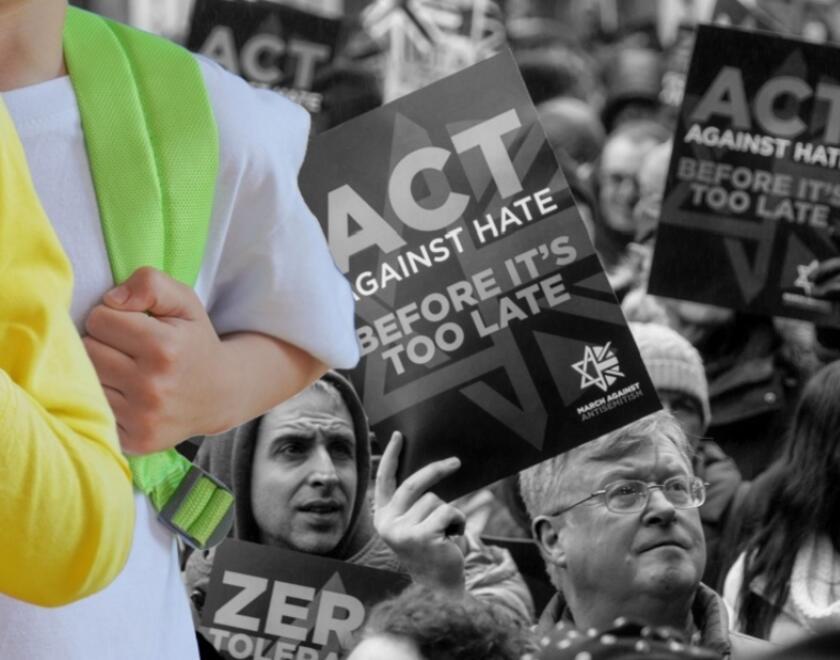Antisemitism is far more prevalent today than antisemitic incident data suggest and Jews have been deeply affected by a culture of ‘ambient antisemitism’ since the October 7 attacks
Dr Jonathan Boyd
In this policy paper:
How have levels of antisemitism in the UK and across Europe changed since the October 7 attack on Israel and the war in Gaza? Using the most recent survey data from July 2024, this policy paper demonstrates how the antisemitic incident reporting figures most commonly quoted significantly underestimate the number of incidents happening in reality. The paper also introduces the concept of ‘ambient antisemitism’ – Jews experiencing antisemitism that isn’t personally directed at them –looking at how the context in which Jews are living today affects their perceptions of antisemitism. It also explores the general population’s attitudes to Jews and Israel before and after October 7, 2023.
The paper concludes that better research methods are required to accurately assess the general population’s attitudes to Jews and Israel and Jewish people’s perceptions and experiences of antisemitism. It points to a critical gap in research compared with the EU and calls on the UK Government and philanthropic community to plug it as a matter of urgency.
Some of the key findings in this policy paper:
- Reports of antisemitic incidents increased dramatically in the months following the Hamas attacks on Israel on October 7 in multiple European countries.
- Survey data demonstrate that the number of antisemitic incidents being recorded by the police and community monitoring agencies vastly underestimates the amount of antisemitism taking place.
- An evident rise in antisemitism since October 7 has had a significant impact on Jewish people’s feelings of safety and security in the UK and across Europe.
- The degree to which the Hamas attacks on October 7 were marked by open celebration and affirmation of violence reveals a level of antisemitic hate that exists within parts of Western Europe that poses a severe threat to Jews living on the continent.
- A culture of ‘ambient antisemitism’ has emerged in the post-October 7 period, marked by incidents such as defacing or tearing down posters of Israeli hostages, that, whether strictly antisemitic or not, create a broader milieu that feels threatening and hostile to many Jewish people.
- Inaccurate and irresponsible media reporting can lead directly to an increase in antisemitism, although more research is required to understand how and when this occurs.
- There has been a significant increase in sympathy for the Palestinians among young people and those on the political left since October 7; levels of sympathy for Israel are much lower, even in the very immediate aftermath of the Hamas attacks.
- The lack of sympathy for Israel is likely to lead to many Jews feeling a greater sense of alienation from the societies in which they live over time.
- Given the apparent levels of concern among Jews today, much more needs to be done to invest in a robust and systematic approach to measuring antisemitism in society and its effects on Jews as part of a serious strategy to combat it going forward. This is particularly the case in the UK, which has fallen far behind the EU since leaving the European Union in this respect.
DOI: 10.64359/vlapkwsg7
Our reports are free to download.
However, they are not free to produce. It will cost JPR £1.5 million to continue to do its essential work in 2025, and as a registered charity, we rely on the generosity of donors to undertake our vital research. Please consider donating to help cover the costs of this particular report or to support JPR’s work more generally.
Donate hereDr Jonathan Boyd
Executive Director
Dr Jonathan Boyd
Executive Director
Jonathan has been Executive Director of JPR since 2010, having previously held research and policy positions at the JDC International Centre for Community Development in...
Read more



